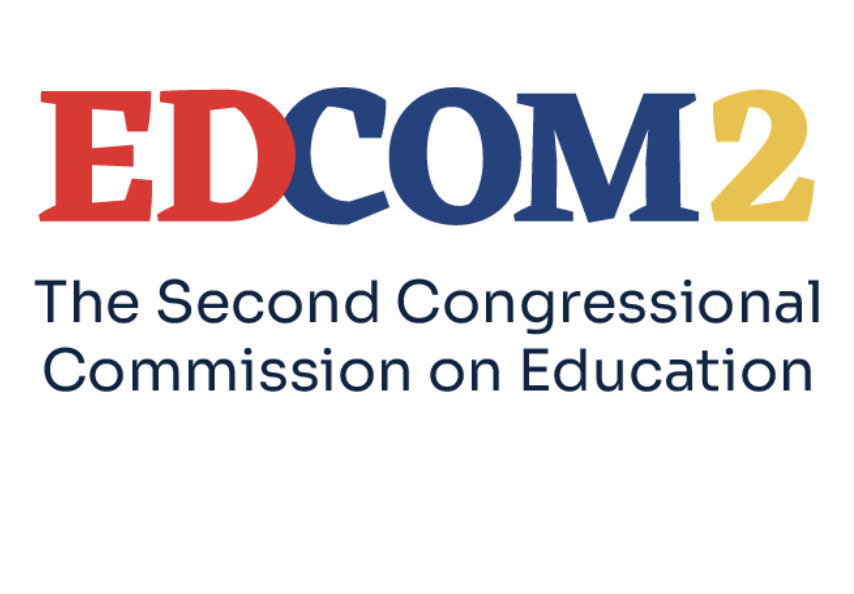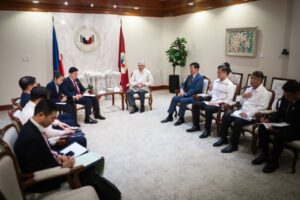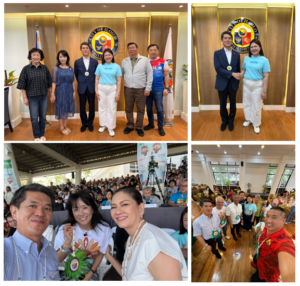
A four-day study visit to Vietnam by the Philippines’ Second Congressional Commission on Education (EDCOM 2) kicked off today.
The Commission seeks to learn Vietnam’s best practices in: (1) improving access, equity, and opportunity; (2) attracting and supporting qualified teachers; (3) strategic use of assessments; (4) effective governance and efficient financing of education.
EDCOM 2, the congressional body created through RA11899, is tasked to undertake a comprehensive national assessment and evaluation of the performance of the Philippine education sector. In the next three years, it will also recommend legislation that aims to address the education crisis in the country. It is for this mandate that the Commission conducts study visits around the country, as well as abroad, in an effort to acquire and pursue key strategies that will uplift the quality of education in the Philippines.
“We want to learn from Vietnam because its stage of economic development and level of education spending are not far from ours, and yet their learners are way ahead of ours. Looking at Vietnam’s example, we particularly want to learn how we can be efficient with our spending to improve learner outcomes,” Co-Chairperson of EDCOM 2 Senator Win Gatchalian said.
Official reports show that while Vietnam is in a similar economic phase as the Philippines, it performed better in the 2022 Program for International Student Assessment (PISA). Vietnam’s average score (468) was way above the Philippines’ (353), despite the former spending roughly the same amount in education as a proportion of gross domestic product (GDP). The Philippines spends an equivalent of around PHP55,000 on average per learner every year from kindergarten until the age of 15, while the same factor in Vietnam is PHP69,000.
“We want to learn from our Vietnamese neighbors to find answers to questions such as: ‘How do we invest better in teacher development?’, ‘What are the possible solutions to delivering timely learning resources and learner assessments?’, and ‘How could we more strategically invest in improving learning outcomes?’. Learning from our neighbors first-hand is essential in ensuring that we find realistic and implemetable solutions to address the learning crisis in the Philippines,” EDCOM 2 Executive Director Dr. Karol Mark Yee said.
The Commission also hopes this visit will lead to increased collaboration and exchanges between the Philippines and Vietnam, especially in the area of education.
The Philippine delegation includes EDCOM 2 Co-Chairpersons Senator Sherwin Gatchahlian and Representative Mark Go, as well as Commissioner Rep. Jose Francisco “Kiko” Benitez. Traveling with them are Advisory Council Member Alfredo Ayala, and Standing Committee Members Dr. Jennie Jocson, Dr. Marie Therese Angeline P. Bustos, Elvin Ivan Uy, and John P. Sevilla.
EDCOM 2’s itinerary includes meeting with key officials on education reform, including the Vietnam National Assembly Committee of Culture and Education, and National Assembly Vice-Chair Nguyen Duc Hai. The Commission will also conduct a roundtable discussion on Vietnam’s education system with the Ministry of Education and Training’s officials and specialists, led by Deputy Minister Nguyen Van Phuc.
Furthermore, EDCOM 2 will visit public pre-primary, primary, secondary, and high schools in Hanoi. It will also conduct a focus group discussion with Filipino teachers in Vietnam, and meet with Royal Melbourne Institute of Technology (RMIT) in Vietnam. RMIT opened a branch of the Australian university in Ho Chi Minh, Hanoi, and Da Nang—the first completely foreign-owned university granted permission to operate in the country.
Recent discussions on changes to the 1987 Constitution also dealt with foreign ownership of educational institutions, particularly higher education institutions. Director Yee previously underscored the need to clearly set the government’s vision and targets in opening up education to full foreign ownership, citing other ASEAN countries as examples where the government rolled out generous incentives and adjusted its policies to attract the best international institutions.


